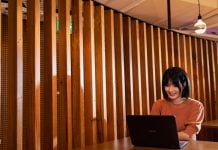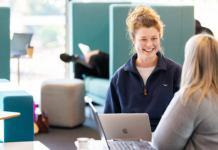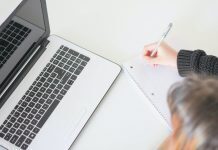As part of the podiatry discipline at La Trobe University, I proudly acknowledge the Traditional Custodians and rightful owners of the Country where university campuses are located in Victoria and pay my respects to Elders past and present. I recognise that First Nations Peoples have an ongoing connection to these unceded sovereign lands, waterways and skies. I value Aboriginal and Torres Strait Islander contribution to both the University and wider Australian society, as well as Aboriginal and Torres Strait Islander continuing ways of knowing, being and doing.
I acknowledge the importance of foot health in ongoing First Nations cultural traditions and Community obligations. I recognise the importance of foot health in walking on and connecting to Country, to teaching and to storytelling. I understand it is central to the emotional expression of dance and ceremony, and that foot health is required in movement translating political messages and raising awareness of Aboriginal and Torres Strait Islander issues. I privilege the ongoing teachings from Ancestors, Elders and Community, and aspire health outcome equity across Country
Staff and students from the discipline of podiatry here at La Trobe University were lucky enough to recently be invited to attend a culturally safe podiatry clinic on Wiradjuri Country operated with and for First Nations Peoples, by the University of Newcastle and the Wellington Local Aboriginal Land Council.

This was not an exercise in cultural tourism. This was not a trip to learn ‘of and about’ First Nations culture, no, far from it. This was an opportunity to learn with and from the experts in Aboriginal and Torres Strait Islander health, Aboriginal and Torres Strait Islander Peoples themselves, to privilege their worldviews, and to develop our cultural safety.
If you are unsure what cultural safety is, have a look here at the National Scheme’s Aboriginal and Torres Strait Islander Health and Cultural Safety Strategy 2020-2025. Cultural safety is all about providing health care in this country that is free from racism, and that is judged to be safe to approach and use by Aboriginal and Torres Strait Islander Peoples.
Developing cultural safety is a fundamental skill of a podiatrist and removing racism from our care giving is essential to health outcome equity. We were invited onto Wiradjuri Country by local Community and Elders with University of Newcastle staff and students to;
- reflect upon who we are,
- learn truthful Australian history,
- acknowledge our white privilege,
- check our unconscious biases,
- and better understand racism in this country.
If you have a read of the wonderful IndigenousX article by Luke Pearson and Mick O’Loughlin from earlier in the year, you’ll see that racism ‘is not about whether you are a nice person or not, it is about whether you have the skills required to do your job and to influence individual and systemic change.’ We went onto Wiradjuri Country to improve our skills, to listen to First Nations voices and to privilege First Nations ways of knowing, being and doing.

We yarned, we listened to the storytelling, we heard Truth-telling, and we progressed that little bit further along our life-long cultural safety journey. We became more than aware of cultural difference, we became sensitive to it and legitimised it, and we embedded learnings within ourselves and into our podiatry. By working in a culturally safer manner we were giving back to Community through safer service, positive healthcare experiences, and improved health outcomes in terms of better foot health. As podiatrists, we can contribute to healthcare equity in this Country. So why don’t you consider a career in podiatry? Especially if you are an Aboriginal or Torres Strait Islander student.
The La Trobe University podiatry discipline is decolonising curriculum to support health outcome equity, and to support First Nations students undertaking our program. We aim to:
- Create a culturally safe learning environment for all students
- Produce culturally safer graduates who have the capacity to address health inequity
- Make our profession safe to approach and use for First Nations Peoples
- Welcome, respect and privilege Aboriginal and Torres Strait Islander students
- Graduate First Nations podiatrists in recognition that a strong First Nations health workforce is key to improved health care experiences and outcomes
We realise that to promote diversity, inclusion, and equity for First Nations podiatry students, we need to support cohorts with an approach involving a decolonised curriculum, skilled teaching staff, and anti-racist mindset and actions.
Podiatry is a fantastic career, and the podiatry discipline want to lead the decolonised space at La Trobe University. We will seek out experts in this field to teach us in this pursuit, and in doing so, we thoroughly thank Matt West, Professor Viv Chuter, and Ben Peterson from the University of Newcastle, and Uncle Barry and the staff at the Wellington Local Aboriginal Land Council, for all their time, patience, knowledge, care and teaching. We cannot wait to see you all again….. on Country.













